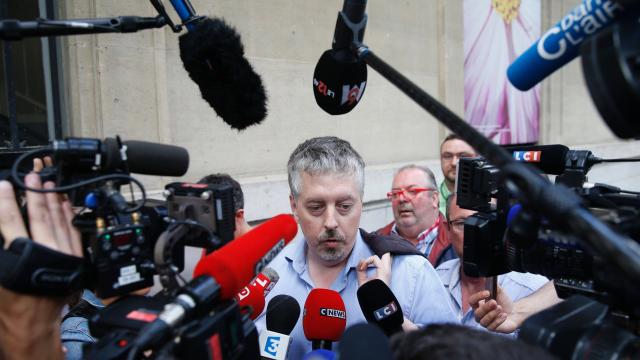Fuels: Towards the end of the Tanker Driver Strike?

The CGT Transport, causing strikes and distrupting the transport of fuels for six days, welcomed on Wednesday “significant progress” and deemed possible the “lifting of the strike”.
“We achieved significant progress” that could lead to “the lifting of the strike for the three-day Pentecost weekend,” told the press Jérôme Truth (CGT), after a meeting more than two hours at the Department of Transport.
The CGT will submit to the drivers of hazardous materials an agreement reached on Wednesday during the meeting at the Ministry of Transport, paving the way for a resumption of work, the sixth day of a social movement that led to fuel shortages mainly in the Ille-de-France.
This text will be presented to the strikers “tonight or early tomorrow morning so as to arrive at the lifting of blockades for the weekend, if the base the decision,” said after the meeting of Jerome Truth, the secretary general of the CGT Transport, the only union that called the strike.
Specificity of the transportation of hazardous materials and working conditions
In the center of the conflict, include the specificity of the transport of hazardous materials and working conditions, the CGT Transport are claiming a daily maximum working day of 10 hours, a specific biannual medical monitoring, a minimum hourly rate of 14 € for the hour and a thirteenth month, a demand shared by all the unions.
According to Mr. Truth, “the government pledged on the 16th June to introduce a number of changes to standard contracts which should answer in large part to claims of employees on better working conditions and above all ensure that companies can not derogate from a number of devices “ .
In addition, “on aspects of classification and recognition of the specific business of hazardous materials, here too we have a very clear timetable that will take us until 10 July. And on June 19, we will finally discuss with the employers on the recognition of specific professions, including that of hazardous materials “ , he added.
Discussions between employee and employer organizations (FNTR, TLF, UR) were already scheduled in July.
Upcoming discussions
“We’re going in the right direction”, commented Patrice Clos (FO), indicating that the unions had achieved “the organization of discussions”, claimed by the CFTC, CFDT, FO and CFE-CGC. The representatives of the CFDT, Thierry Douine and Patrick Blaise, called on the government, which is hearing the case on Wednesday, “to fully play its role” to ensure “the same rules of the game” among all carriers.
Difficulties in the Paris region
Earlier Wednesday, the government spokesman, Christophe Castaner, had assured that this issue was not within the government and warned against an “over-consumption”. “All service stations are supplied to a normal pace” , he said after the Council of Ministers. The strike action was launched on the 24th May by the CGT Transport.
On Wednesday a “complete breakdown” in half of the 550 service stations network of the French Union of Petroleum Industry (UFIP). In all, there are about 1000 service stations in Île-de-France.
“The situation is slightly less favorable than Tuesday” , has declared the day Catherine Enck, the UFIP. Six depots in the Paris region were disrupted. In the rest of the country, “the situation is almost normal”, said the Ufip in a statement.
Enjoyed this? Get the week’s top France stories
One email every Sunday. Unsubscribe anytime.


